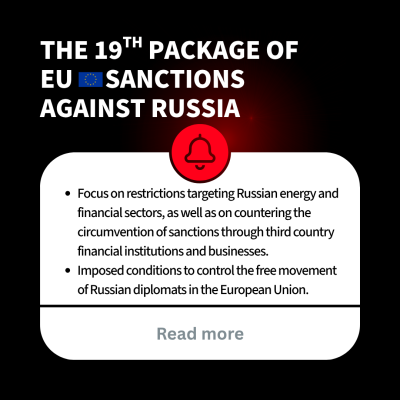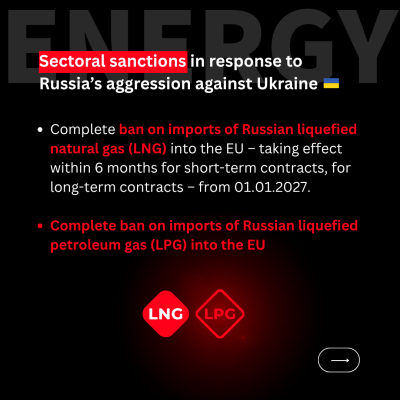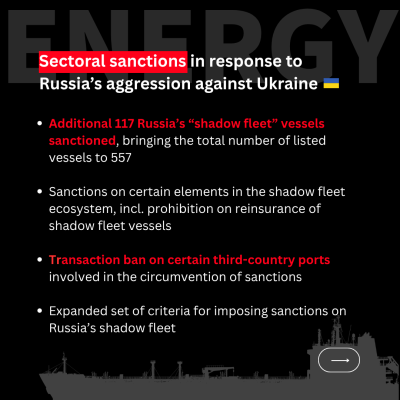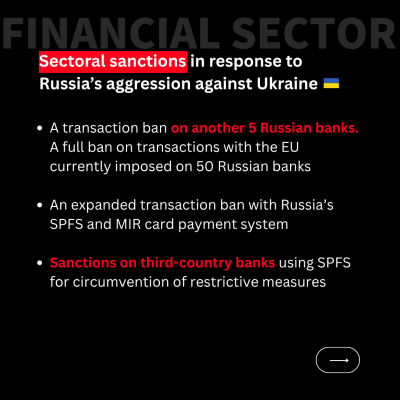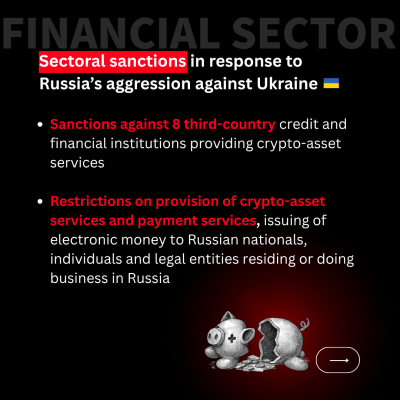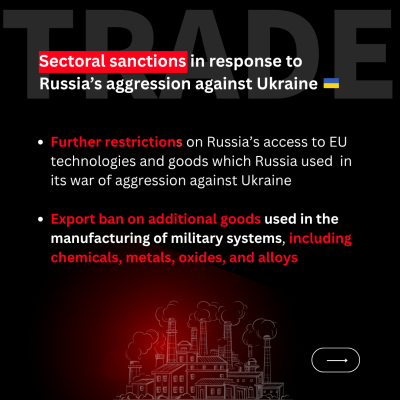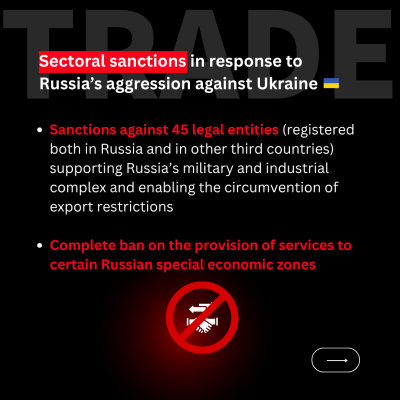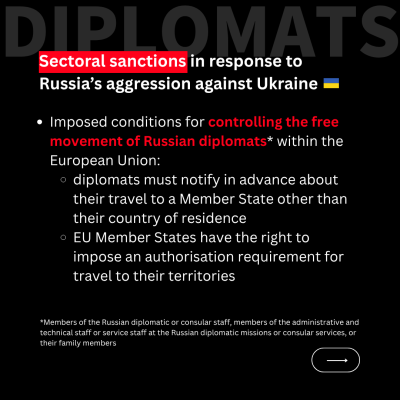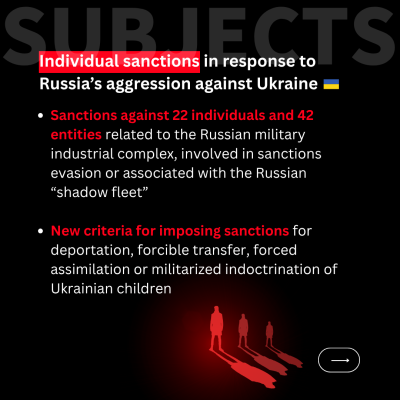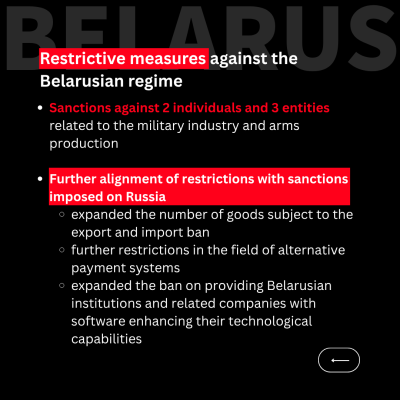On 23 October 2025, the European Union adopted 19th package of sanctions against Russia
It focuses on restrictions targeting Russian energy and financial sectors, as well as countering the circumvention of sanctions through third country financial institutions and businesses.
Conditions to control the free movement of Russian diplmats in the European Union were imposed, too.




